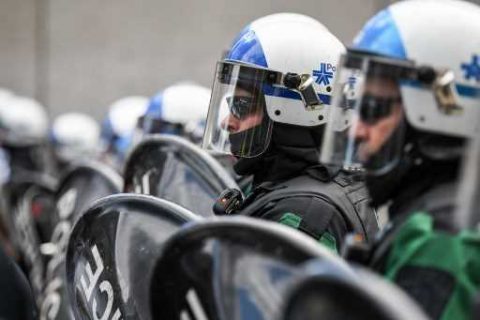
By Thomas I. Likness
EBC Edmonton Bureau
EDMONTON (Eagle News) — Public confidence in North American police services is eroding according to the findings of a new public opinion poll released Tuesday.
The poll done by Leger found that 70% of Canadians asked trust police. While that number is high, it is an 11% drop from six weeks earlier. Visible minorities had less confidence in police, with only 61% saying they trusted the authorities.
Americans polled on the same issue placed less trust in police services. Only 60% trusted police a drop of three percent from a poll done in early May. Only 44% of visible minorities said they trusted police officers.
On the issue of how police forces are dealing with racism, 63% of Canadians and 58% of Americans polled said they were satisfied with the efforts made by their governments to improve relations with visible minorities.
How safe do people feel when they interact with police? Seventy-five percent of Canadians and 64% of Americans said they did not fear for their safety.
A large majority thought it would be a good idea for police officers to wear a body camera. Ninety percent of Canadians and 87% of Americans said they believed body cameras would be a good measure.
The web survey was conducted from June 12 to June 14, 2020, 1,527 Canadians and 1,004 Americans, 18 years of age or older, randomly recruited from Leger’s online panel.
Using data from the 2016 Census, the results were weighted by gender, age, mother tongue, region, education level and presence of children in the household in order to ensure a representative sample of the population.
For comparison, a probability sample of 1,527 respondents would have a margin of error of plus or minus 2.51%, 19 times out of 20, while a probability sample of 1,004 would have a margin of error of plus or minus 3.1%, 19 times out of 20.
(Eagle News Service)
